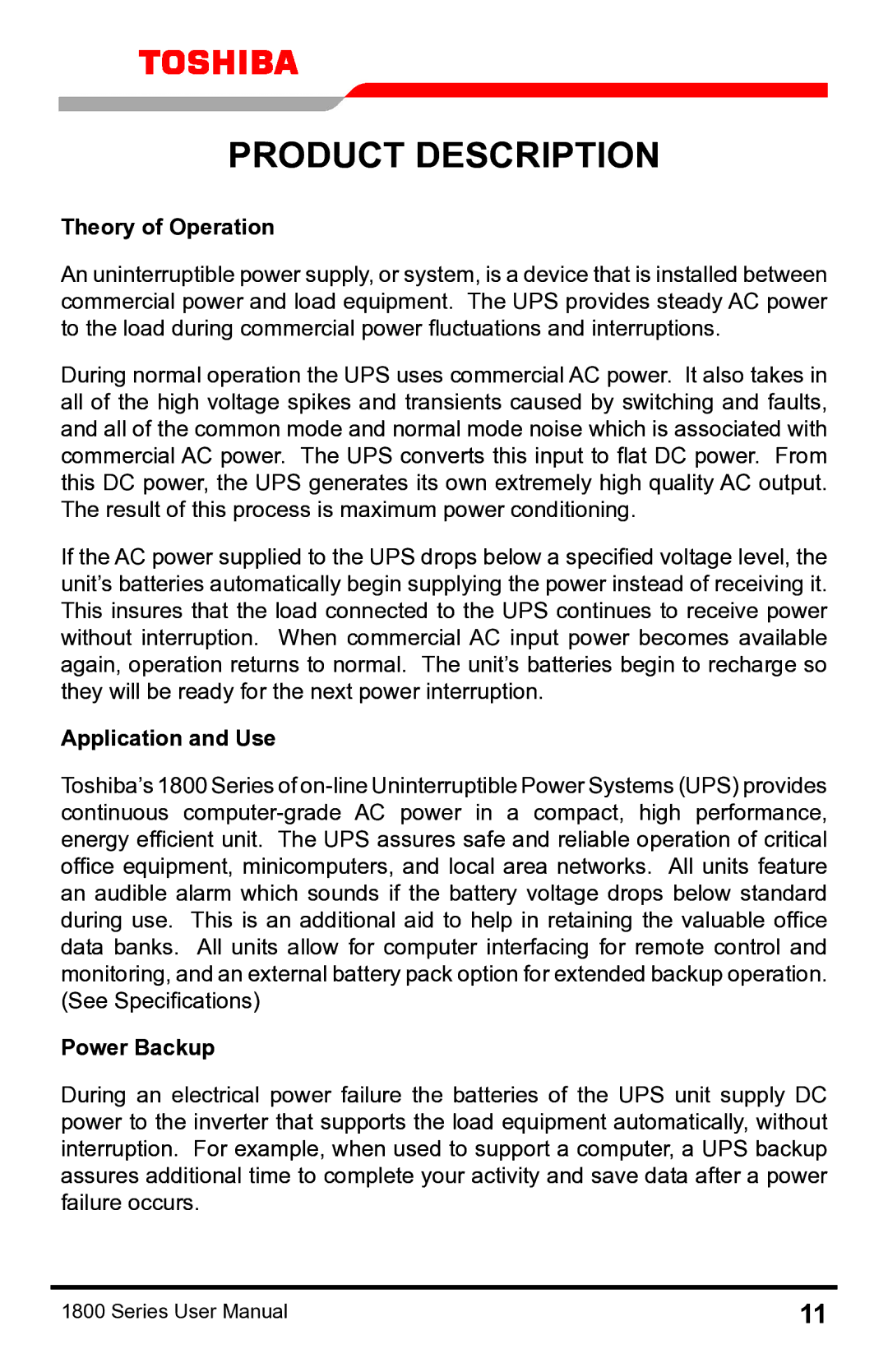
Product Description
Theory of Operation
An uninterruptible power supply, or system, is a device that is installed between commercial power and load equipment. The UPS provides steady AC power to the load during commercial power fluctuations and interruptions.
During normal operation the UPS uses commercial AC power. It also takes in all of the high voltage spikes and transients caused by switching and faults, and all of the common mode and normal mode noise which is associated with commercial AC power. The UPS converts this input to flat DC power. From this DC power, the UPS generates its own extremely high quality AC output. The result of this process is maximum power conditioning.
If the AC power supplied to the UPS drops below a specified voltage level, the unit’s batteries automatically begin supplying the power instead of receiving it. This insures that the load connected to the UPS continues to receive power without interruption. When commercial AC input power becomes available again, operation returns to normal. The unit’s batteries begin to recharge so they will be ready for the next power interruption.
Application and Use
Toshiba’s 1800 Series of
Power Backup
During an electrical power failure the batteries of the UPS unit supply DC power to the inverter that supports the load equipment automatically, without interruption. For example, when used to support a computer, a UPS backup assures additional time to complete your activity and save data after a power failure occurs.
1800 Series User Manual | 11 |
